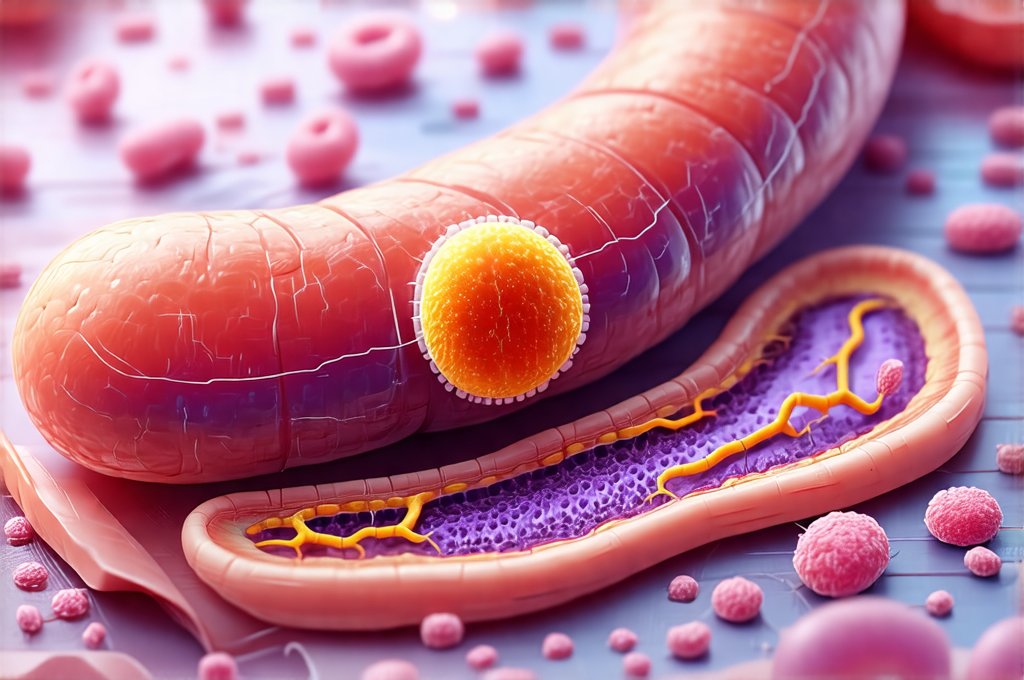Our bodies are remarkable ecosystems, far more complex than many realize. We often think of ourselves as singular entities, but in truth, we’re walking colonies hosting trillions of microorganisms – the vast majority residing within our digestive system. This intricate community, collectively known as the gut microbiota, isn’t merely along for the ride; it actively participates in nearly every aspect of our health, playing a pivotal role in how we extract energy from the food we consume. Understanding this relationship is key to appreciating the profound connection between gut health and overall wellbeing.
The traditional view focused on human digestion as solely the responsibility of our own enzymes and digestive processes. However, research over the past few decades has dramatically reshaped this understanding. Gut bacteria possess metabolic capabilities that we lack – abilities to break down complex compounds, synthesize vitamins, regulate immune function, and crucially, influence how we process macronutrients: fats, carbohydrates, and proteins. They effectively extend our digestive capacity, allowing us to glean more energy from food and impacting the very fuel sources powering our bodies. This isn’t simply about absorbing nutrients; it’s about transforming them into usable forms and influencing metabolic pathways. Understanding gut inflammation is a great starting point to understanding this process.
The Gut Microbiota & Carbohydrate Metabolism
Carbohydrates are often the first macronutrient we think of when considering energy, but their processing is surprisingly complex, and heavily reliant on bacterial activity. While some carbohydrates – like glucose – are readily absorbed in the small intestine, many others, particularly complex carbohydrates like fiber and resistant starch, reach the colon largely undigested. This is where our gut bacteria step in. They ferment these undigested carbs, breaking them down into short-chain fatty acids (SCFAs) such as acetate, propionate, and butyrate. These SCFAs aren’t just waste products; they are incredibly important for several reasons:
- Energy source: SCFAs provide a significant energy source for the cells lining the colon, contributing to gut health. Butyrate, in particular, is a preferred fuel for these cells.
- Systemic effects: SCFAs are absorbed into the bloodstream and can influence metabolism beyond the gut, impacting blood sugar control, inflammation, and even brain function.
- Gut barrier integrity: SCFAs help maintain the strength of the gut barrier, preventing “leaky gut” and reducing systemic inflammation.
The specific types of bacteria present in your gut dictate which carbohydrates are fermented and what kinds of SCFAs are produced. A diet lacking in fiber can lead to a decrease in SCFA-producing bacteria, potentially compromising gut health and energy metabolism. Conversely, diets rich in diverse plant fibers support a flourishing microbial ecosystem capable of efficiently processing carbs and reaping the benefits of SCFAs. Different bacterial species specialize in different carbohydrates; therefore, dietary diversity is crucial for optimal fermentation. Learning how to eat for energy can support this process.
The impact isn’t just about what we eat, but also how quickly. Rapidly digestible carbohydrates cause spikes in blood sugar, potentially leading to insulin resistance over time. Gut bacteria can modulate this process by slowing down digestion and influencing glucose absorption. Furthermore, some bacterial species can even reduce the glycemic index of foods – meaning they lessen their impact on blood sugar levels. This demonstrates a dynamic interplay between diet, gut microbiota composition, and metabolic health.
The Role of Fiber & Resistant Starch
Fiber isn’t digested by our own enzymes but is essential for gut health. It comes in two main types: soluble and insoluble. Soluble fiber dissolves in water, forming a gel-like substance that slows digestion and can help lower cholesterol levels. Insoluble fiber adds bulk to stool, promoting regularity. Both types are fermented by gut bacteria, yielding different SCFAs and contributing to overall digestive function. Resistant starch is another important component; it behaves similarly to fiber because it resists digestion in the small intestine.
- Sources of resistant starch include cooked and cooled potatoes, green bananas, oats, and legumes.
- Fermentation of resistant starch leads to increased butyrate production which has anti-inflammatory properties and supports gut barrier function.
- Including both soluble and insoluble fiber alongside resistant starch provides a balanced approach to feeding your gut bacteria and optimizing carbohydrate metabolism.
The fermentation process itself is complex, involving multiple bacterial species working in synergy. Bifidobacteria and Lactobacilli, often associated with probiotic supplements, are key players in fermenting certain fibers and producing beneficial metabolites. However, it’s important to remember that a healthy gut ecosystem isn’t about maximizing the population of specific strains; it’s about cultivating diversity across numerous species. Combining probiotics and diet changes can greatly improve gut health.
Impact on Insulin Sensitivity & Blood Sugar Control
The gut microbiota directly influences insulin sensitivity, which is crucial for regulating blood sugar levels and preventing type 2 diabetes. Dysbiosis – an imbalance in gut bacteria – has been linked to impaired insulin signaling and increased inflammation. Certain bacterial species promote the production of metabolites that enhance insulin sensitivity, while others contribute to inflammation, hindering its effectiveness.
- SCFAs like propionate can improve insulin sensitivity by influencing glucose metabolism in the liver.
- Specific bacterial groups have been shown to modulate gut hormones involved in appetite regulation and insulin secretion.
- A diet high in processed foods and low in fiber disrupts the balance of gut bacteria, potentially leading to decreased insulin sensitivity and increased risk of metabolic disorders.
It’s not simply about avoiding sugar; it’s about fostering a gut environment that can effectively manage glucose metabolism. By promoting a diverse and thriving microbial community through dietary changes – emphasizing fiber-rich foods and minimizing processed sugars – we can improve our body’s ability to regulate blood sugar levels and maintain metabolic health.
Gut Bacteria & Fat Metabolism
While fats are often viewed negatively, they’re essential for energy production, hormone synthesis, and cell function. Our gut bacteria play a significant role in how we digest and absorb fats, as well as the types of fats we utilize. Unlike carbohydrates and proteins, fat digestion begins primarily in the small intestine with the help of bile acids produced by the liver. However, gut bacteria modify these bile acids, influencing their ability to emulsify fats and facilitating absorption.
- Bile acid modification is a crucial function: Bacteria can deconjugate bile acids, making them less effective at fat absorption, potentially reducing cholesterol levels.
- The composition of your gut microbiota influences the efficiency of fat digestion and absorption, impacting energy extraction from dietary fats.
- Specific bacteria species are involved in breaking down different types of fats, including saturated, unsaturated, and polyunsaturated fatty acids.
The impact extends beyond simple digestion; gut bacteria also influence fat storage and utilization. They can affect the expression of genes involved in lipid metabolism and contribute to the regulation of energy expenditure. Dysbiosis has been linked to increased fat absorption and accumulation, potentially contributing to obesity. A healthy gut microbiome supports efficient fat metabolism and helps maintain a balanced body composition.
Bacterial Influence on Bile Acid Metabolism
Bile acids are synthesized in the liver from cholesterol and play a critical role in emulsifying fats, making them accessible for digestion and absorption. However, these primary bile acids undergo modifications by gut bacteria through a process called deconjugation. This reduces their ability to absorb fats, resulting in some fat being excreted rather than absorbed.
- Different bacterial species have varying capacities for deconjugating bile acids.
- The balance between primary and secondary bile acids influences cholesterol levels – increased deconjugation can lower cholesterol by promoting its excretion.
- Dietary factors like fiber intake can impact the composition of bile acid pools and influence gut bacteria’s ability to modify them.
Impact on Energy Expenditure & Obesity
Emerging research suggests a link between gut microbiota composition, energy expenditure, and obesity risk. Certain bacterial species have been associated with increased energy harvest from food – meaning they allow us to extract more calories from the same amount of food. Conversely, others may promote energy expenditure or reduce fat storage.
- Akkermansia muciniphila, a bacterium known for its role in gut barrier function, has also been linked to improved metabolic health and reduced obesity risk.
- The gut microbiome can influence the expression of genes involved in lipid metabolism, affecting how efficiently we burn fat.
- Dysbiosis contributes to chronic low-grade inflammation, which is associated with insulin resistance and increased fat storage.
Gut Bacteria & Protein Metabolism
Protein digestion begins in the stomach and continues in the small intestine, where amino acids are absorbed. However, a significant portion of dietary protein reaches the colon undigested, providing substrate for bacterial fermentation. This process results in the production of various metabolites, some beneficial and others potentially harmful.
- Fermentation of undigested protein leads to the formation of compounds like branched-chain fatty acids (BCFAs), ammonia, hydrogen sulfide, and indoles.
- While BCFAs can provide a small energy source, excessive protein fermentation is associated with gut inflammation and increased risk of colon cancer.
- The composition of your gut microbiota dictates how efficiently proteins are fermented and what metabolites are produced.
The key to healthy protein metabolism isn’t necessarily reducing protein intake (which is vital for muscle maintenance and overall health); it’s optimizing digestion and absorption in the small intestine, minimizing the amount reaching the colon for fermentation. This can be achieved through strategies like proper chewing, adequate digestive enzyme support (if needed), and a balanced diet that supports efficient nutrient absorption. Furthermore, ensuring sufficient fiber intake helps dilute the undigested protein reaching the colon, reducing the production of harmful metabolites. The relationship between gut bacteria, protein metabolism, and overall health is complex and requires further research, but it’s clear that the microbiome plays a critical role in determining how we process this essential macronutrient. To learn more about supporting your body’s energy needs, consider how to eat for energy. Understanding gut inflammation affects energy is also crucial for overall health. A well-planned approach to meal organization techniques can significantly improve digestion and wellbeing. When considering dietary changes, explore how fermented foods can help. For those looking to optimize their diet, choosing digestive-friendly proteins is paramount. It’s also important to consider how to balance gut acidity for optimal nutrient absorption, and the benefits of combining probiotics and diet changes.


















